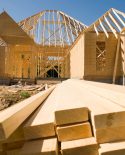Over the course of the last few months, life for many, all over the world, has changed significantly and suddenly. On the list of things we expected for 2020, many of us probably wouldn’t have put “worldwide pandemic” on our list – but one truth about life is that we can often expect the unexpected. The Coronavirus has caused a shift to a new normal in many aspects of our lives – and the housing market is no exception.
Prior to the pandemic, certain signs suggested that there would be a lot of buyers in the market. Low unemployment, consistent wage growth, and low mortgage rates were all signals of high demand. Since the pandemic, however, unemployment rates have skyrocketed, companies are either laying off or implementing pay cuts for employed staff, and a great amount of unpredictability and uncertainty exists across all sectors of the economy.
Zillow recently conducted a study of how previous pandemics affected the housing market, and ultimately concluded that although actual home sales dropped dramatically during an outbreak, home prices stayed about the same or if they suffered a decrease, it was only slightly. In essence, previous pandemics did not devastate the housing market – they simply put it on hold for a while.
What we know so far is that on average, across the country, March home sales fell 8.5% according to the National Association of Realtors. Certainly, however, different areas of the country have been affected differently by the pandemic, for any number of reasons. Here’s a quick look at the current state of the real estate market in a few cities coast-to-coast:
- New York: In New York City, which as many know was hit particularly hard by the pandemic, the housing market has come to a near standstill for the time being, as stay-at-home orders approach their third month.
- Los Angeles: In Los Angeles, in-person home showings are almost totally banned, which has caused the real estate industry to rely heavily on digital solutions to keep the market moving.
- Dallas: ATTOM Data Solutions recently released a Special Report spotlighting housing markets around the United States that are more or less vulnerable to the impact of the Coronavirus pandemic, and found that the Dallas-Fort Worth housing market is one of the least vulnerable in the nation to a housing market collapse.
- Chicago: Unlike Dallas, according to the ATTOM Data Solutions report, Chicago is one of the areas of the country most vulnerable to the affects of the COVID-19 pandemic from a real estate perspective. By way of example, last year there were 528 new single-family home listings in Chicago for the week ending April 4 compared to only 255 this year – a 52% drop, and 971 new condo townhome listings for the same timeframe last year compared to only 352 this year – a 64% drop[1].
- Miami: In Miami, total home sales have actually inched up by 0.43% from last year, moving from 2,313 in March 2019 to 2,323 in March 2020. Single-family home transactions increased by 1.6%, and sales of condos decreased by 0.6%. Inventory of existing homes dropped by 12% for single-family homes — from 7,064 to 6,216 — and 9.5% for condo units — from 16,401 to 14,836[2].
While these are glimpses into the real estate markets of these cities at the current time, the truth is that it’s still far too soon to truly accurately predict the long-term impact of the pandemic. Clearly, the real estate market is responding very differently in varying parts of the country, in light of any number of factors.
Fortunately, one thing that is true about the real estate sector is that it is not the stock market – it is typically not as volatile, and not as vulnerable to wild day-to-day swings and sudden sharp changes. Moreover, a silver lining of the current circumstances is that some investors have been driven to bond markets, which have created lower rates and in turn more attractive debt and refinance options for homeowners.
At this early juncture, a great deal of uncertainty still remains with respect to how broadly the virus will spread, and what its lasting impact might be – on public health, on the economy, and on the real estate market. Hopes are high that the housing market, and many other aspects of life will bounce back and rebound quickly.
Regardless of when that happens, however, at GayRealEstate.com, in good times and bad, we’re here for you. We’re passionate about helping the LGBTQ community meet their real estate needs, both when the market is strong, and when it’s not. Whatever your real estate needs, and whenever you need the highest quality professional assistance to meet those needs, we’re ready to help you find the perfect agent in your community. Contact us today www.GayRealEstate.com or 1-888-420-MOVE (6683) and let us know how we can help.
[1] http://www.chicagonow.com/getting-real/2020/04/coronavirus-impact-on-chicago-real-estate-market-week-5/
[2] https://www.miamiherald.com/news/business/real-estate-news/article242177851.html



